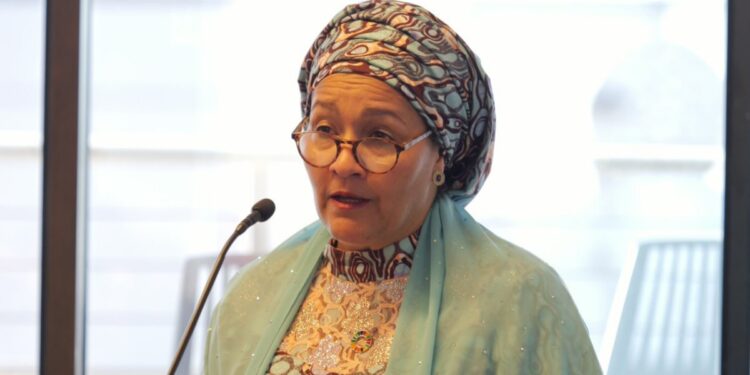United Nations Deputy Secretary- General, Aminat Mohammed has said that nations are failing in their quest to end poverty, hunger; in fight against climate change, pollution and biodiversity loss; and in pursuit of gender equality, shared prosperity and peace for all.
Mohammed who made this known in her closing remarks and introduction to SG’s call to action, Food System Summit in Italy on Wednesday, heartened by what she has seen over the last three days of the Summit especially by women and youth.
According to her, “In two years, the vision that the Secretary-General put forward 2021 Food Systems Summit has rooted, creating momentum for a movement. At this meeting, countries shared vivid accounts of their food systems journeys through more than 100 voluntary reports.
“We might not be winning the game at half time, but the final outcome is still within our control and this can be a winning team! But there is no time to lose and as we’ve discussed in this gathering, we need acceleration”.
The UN Deputy said further that nations need breakthroughs on SDG financing and the means of implementation. “The last three years have dramatically changed the fiscal and debt profiles of many developing countries.

“Addressing the high cost of debt and the mounting risk of debt distress is of utmost importance as demonstrated in the recent report launched by the Secretary-General “A world of debt. A growing burden to global prosperity”.
She emphasized that countries need breathing space, greater international support and investment and needed now. “Developing countries with high debt burdens, require increased liquidity during times of crisis and we’ve responsibility of making the global safety net work for all people”.
Adding that, “The message is clear. Without access to financing and debt relief, developing countries will not be able to invest in food systems that take us beyond just feeding people. We need your continued leadership and we need ambition”, she said.

Mohammed noted that the challenges faced by food systems are not easily overcome. Rural poverty is persistent, widespread. 258 million people are facing acute insecurity. 45 million children are suffering wasting. And 670 million are people facing hunger in 2030, the same proportion as in 2015.
She stated further that progress on food systems is also blocked by absence of opportunities for young people, gender inequalities, marginalization, and a sector that contributes more than one-third of greenhouse gas emissions and as much as 80 percent of biodiversity loss, and uses up to 70 percent of freshwater use.
“Under the Global Crises Response Group, the United Nations continues to look at alternatives to respond to the evolving finance, energy and food crises, by calling on global community to support efforts towards the return to the full implementation of the Black Sea Grain Initiatives.











